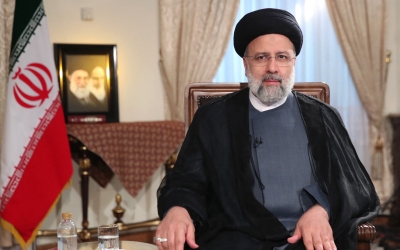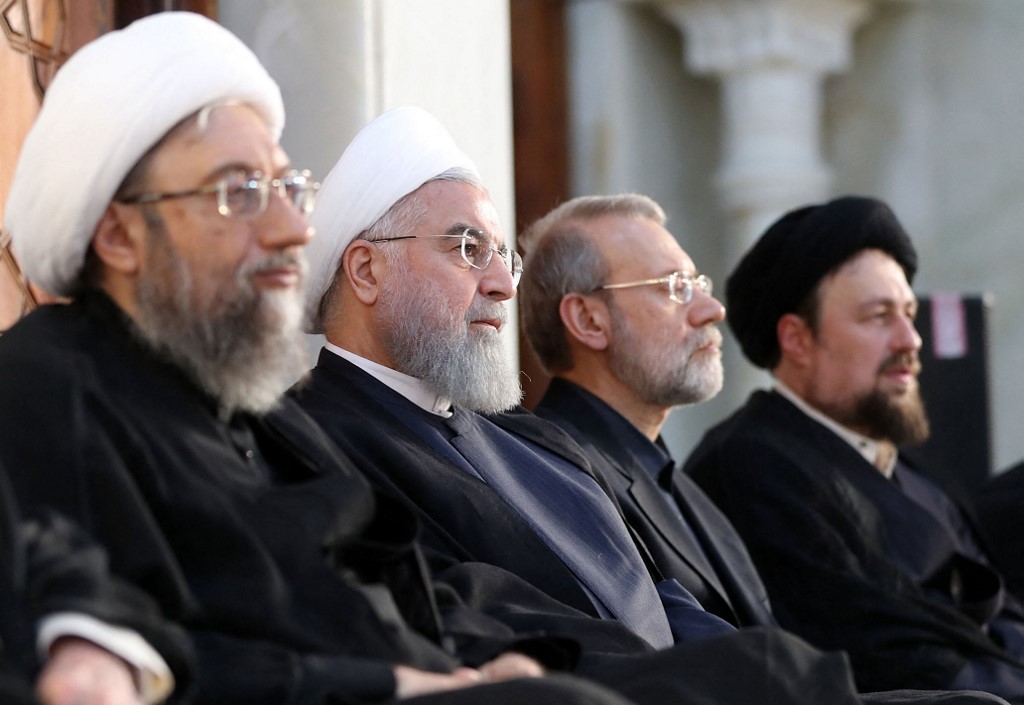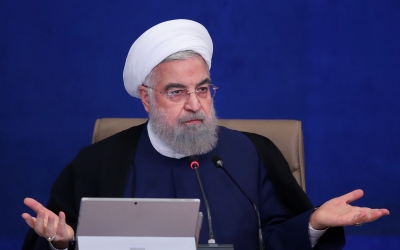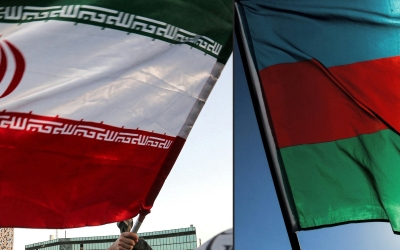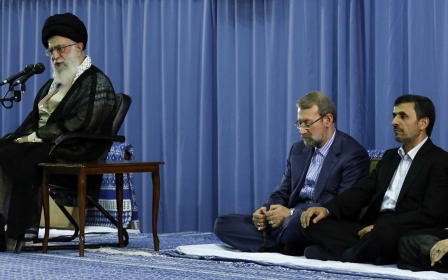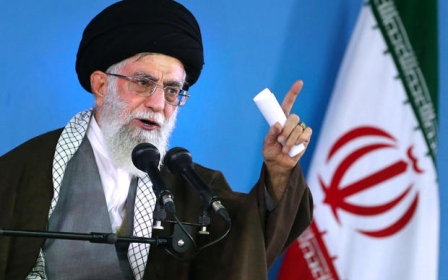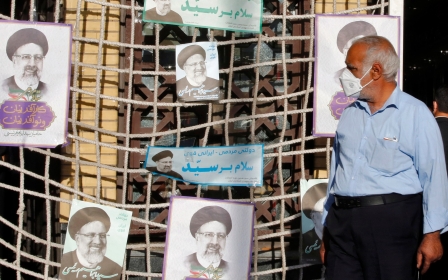Iran's Larijani brothers: The rise and fall of a political dynasty
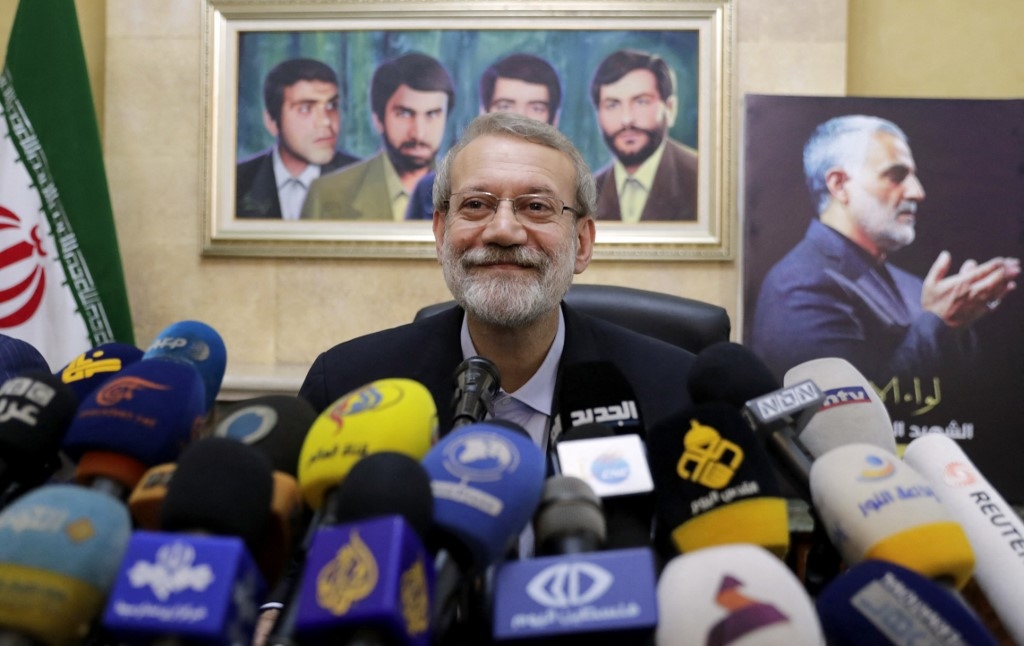
The 2021 presidential elections have paved the way for an abrupt end to the political career of two influential brothers, Ali Larijani, a former parliament speaker, and Amoli Larijani, a former member of the Guardian Council.
Ali Larijani's bid for presidency in 2021 was rejected in June by the Guardian Council, the powerful body in charge of vetting candidates before they can officially run for office.
The disqualification came as a big surprise for many observers.
A military officer for the Islamic Revolutionary Guard Corps for 10 years, parliament speaker for 12 years, and currently serving as an adviser to Supreme Leader Ayatollah Ali Khamenei, the moderate conservative has always shown loyalty to the supreme leader.
His absence in the 2021 election has been interpreted by some analysts as a deliberate move to shape the race in favour of conservatives.
Ali Larijani's younger brother, Sadegh, also known as Amoli, was among the 12 members of the Guardian Council. When Ali was banned from the race, Amoli resigned from his post in protest. But this was only the tip of the iceberg.
A number of Iranian sources have explained to Middle East Eye that the two Larijanis were gradually pushed out of power.
The exclusion of Ali was linked to a desire by the political establishment to eliminate any major candidates for replacing the supreme leader after his death, while Amoli Larijani's crackdown on Khamenei critics has triggered a backlash that arguably ended his judicial career.
The rise of Amoli Larijani
Sadegh Ardeshir Larijani was born in 1960 in the holy city of Najaf in Iraq. His father, the late Grand Ayatollah Haj Mirza Hashem Amoli, had moved to Najaf for studying and teaching at the seminary.
A year after the birth of Amoli as the fourth child, his family moved to Qom in Iran, where his father began teaching.
A source familiar with the history of the family told MEE: "Larijani's father wasn't a revolutionary man, and wasn't involved in the fights against the [US-backed] regime of the Shah [toppled in 1979]."
He added that Amoli's father was even threatened and pressured by a number of fervent supporters of the clerics for not standing with people resisting the Shah.
'It looked like an order had been issued, as many accusations started to emerge on social networks against Amoli Larijani'
- political analyst
Amoli Larijani has four brothers who used to be much more significant than him in Iran's politics: besides Ali, the US-educated Mohammad Javad Larijani is the former deputy foreign minister and the ex-head of the judiciary's council of human rights.
Another brother is the US-educated Fazel, a former cultural attache at Iran's embassy in Canada, while Baqer Larijani is a former deputy health minister.
After graduating from high school, despite receiving a scholarship to study outside of Iran, Amoli's life changed with the encouragement of his father as he decided to become a cleric and began his study at Qom's seminary.
In 1997, Amoli tasted his first political experience at a time when his brothers were already powerful. He ran for the Assembly of Experts election and won the race to become a member of the government body tasked with electing the next supreme leader.
A source, who used to be a conservative official, told MEE that Amoli gradually approached Khamenei and joined his scholarly circle working on fatwas (religious rulings and opinions) of Khamenei. He then managed to attract the attention of the leader through his scientific knowledge and his political positions.
In 2001, Supreme Leader Khamenei appointed him as a member of the powerful Guardian Council.
Amoli Larijani 'went too far'
In 2009, Amoli was named as the head of the judiciary by the supreme leader for five years. This appointment was extended in 2014 for another five-year term.
Amoli was, however, warned about his decision to accept the offer to chair the judiciary.
Grand Ayatollah Hossein Vahid Khorasani, a prominent cleric and the father-in-law of Amoli, opposed his decision, warning him of the consequences of abusing his judicial position, a former conservative official who is familiar with the incident told MEE.
During his years in charge of the judiciary, Amoli's stances and actions, perceived to be more political than judicial, increased his credibility in Khamenei's eyes.
Amoli Larijani repeatedly attacked reformists and former moderate president Hassan Rouhani as well as the figures who criticised the supreme leader. He was constantly involved in verbal debates, commenting on a variety of topics from the humanities and social media to international issues and domestic politics.
The supreme leader often expressed his satisfaction with the performance and "logical positions" of the cleric whom he called "ayatollah," a title given and used for top ranking Shia faqihs (jurists).
'Amoli Larijani went too far in attracting the consent of the leader as he unprecedentedly cracked down on many politicians and their families'
- former judiciary official
A former conservative official told MEE that soon after Amoli Larijani's appointment to head the judiciary there was speculation in political circles that he was among the candidates with a high chance to be elected as the next supreme leader.
The source added that Amoli proved the truth of the speculation, and strove to increase his chances during all these years.
Amoli's tenure as the judiciary chief was one of the darkest periods for human rights after the 1979 revolution. He vehemently cracked down on journalists and reformist activists, jailing many for speaking critically of the political establishment of the Islamic Republic.
"Amoli Larijani went too far in attracting the consent of the leader as he unprecedentedly cracked down on many politicians and their families," a former judiciary official told MEE. "This behaviour created thousands of enemies who constantly sought to discredit him in the eyes of the leader."
He added: "I guess Amoli Larijani did all this to remain among the only valid candidates for replacing the leader. But this backfired as he was gradually undermined in the power centres."
The source pointed out that pressures on Amoli Larijani increased, and his enemies turned the leader against him to some extent, leading Khamenei to appoint hardline cleric Ebrahim Raisi before the official term of Amoli as chief justice came to an end.
Meanwhile, according to an Iranian analyst who spoke to MEE on condition of anonymity, Amoli's enemies weren't ready to leave him alone. Their plan was seemingly to kick him and his whole family out of power.
"It looked like an order had been issued, as many accusations started to emerge on social networks against Amoli Larijani," the analyst stated. "The state TV, which is under the control of hardliners, and several conservative officials also began discrediting him by bringing up accusations and revelations against him."
He noted that soon after leaving the judiciary, Amoli Larijani's deputy, Akbar Tabari, was arrested, put on trial, and found guilty of corruption.
The analyst added that Amoli denied that his deputy had been involved in corruption. However, his trial proceeded and he was jailed.
"There was at the time some chatter that Tabari was arrested in Amoli Larijani's mansion in the coastal north of the country. This shows how close their relationship was," the analyst said.
Costly outburst
Following the appointment of Ebrahim Raisi as chief justice in 2019, Amoli was named as chairman of the Expediency Council, tasked with resolving a dispute between parliament and the Guardian Council over bills.
The new position had the potential for him to recover his status in the political establishment, but his public feud with the late cleric Ayatollah Mohammad Yazdi, a Khamenei ally, worsened his fortunes.
When reports surfaced about the arrest of his former deputy, Amoli wrote a letter to Khamenei, complaining about the recent moves while threatening to leave the country for Najaf to express his protest.
'[Amoli's] statement and his lack of control over his mouth and behaviour turned him into an unreliable person for the top officials'
- former conservative official
Mohammad Yazdi, then a member of the Guardian Council, confirmed such reports while belittling Amoli, saying that if he left Iran nothing would happen. He also indirectly accused Amoli Larijani of corruption over building a luxurious seminary school in Qom.
In reaction, Amoli released a statement that was unprecedented in the Islamic Republic in terms of revelations of a public verbal dispute between two senior hardline clerics.
"I am the treasury of the secrets about [the charges] of [officials] and sons of officials and figures, and today I am still paying the price of standing up to them," said Amoli in his open letter to Yazdi on 18 August 2019.
The former conservative official, who spoke on condition of anonymity, told MEE: "This was the time when Amoli's image was tarnished in the eyes of the deep state and high ranking officials.
"His statement and his lack of control over his mouth and behaviour turned him into an unreliable person for the top officials. And this was a blow to his ambitions to become the next leader."
'Led to the exit door'
Unlike Amoli, who has mostly taken hardline positions, his elder brother Ali Larijani is known as a moderate and wise figure despite the fact that he was a conservative up until 15 years ago.
Ali fell from grace when he supported the foreign policy of Rouhani and took positions similar to reformists. This gradually resulted in the deep state and the establishment losing faith and trust in him.
He ran for president, but he was unexpectedly banned from the election race by the Guardian Council, whose members are appointed by the leader.
Speaking on condition of anonymity, the political analyst told MEE that Ali Larijani was excluded from the race for three reasons.
"First of all, he was expected to follow the footsteps of reform-minded Rouhani's foreign and domestic policies, and the deep state hated this. Secondly, the deep state didn't want hardline cleric Ebrahim Raisi to face a strong contender with a high chance of victory over him."
He added: "Most importantly, the deep state assumed that Ali Larijani's possible victory in the presidential elections would embolden the Larijanis and once again increase the chance of Amoli Larijani as a successor of Khamenei."
The former conservative official told MEE: "In reaction to the ban on Ali Larijani, Amoli, who was a member of the Guardian Council, didn't attend the council's meetings anymore and finally submitted his resignation to the leader."
Before his resignation, Amoli took to Twitter to criticise his colleagues publicly while claiming that the security apparatus had enormously impacted the decision of the Guardian Council members about banning the presidential candidates. He then added that he had never found the council's decisions "undefendable" to this extent.
The ex-conservative source added: "Such behaviour, I mean his hysterical resignation and tweets, are unprecedented in the Islamic Republic and inside the establishment. If anyone is in disagreement with a group or an institution, he would never make it public.
"Amoli's outburst once again proved his enemies' point that he is not trustworthy and led to his status being diminished in the eyes of the leader.
"I think right now the Larijanis, especially Amoli, are being led to the exit door of the Islamic Republic's ship."
Middle East Eye propose une couverture et une analyse indépendantes et incomparables du Moyen-Orient, de l’Afrique du Nord et d’autres régions du monde. Pour en savoir plus sur la reprise de ce contenu et les frais qui s’appliquent, veuillez remplir ce formulaire [en anglais]. Pour en savoir plus sur MEE, cliquez ici [en anglais].


